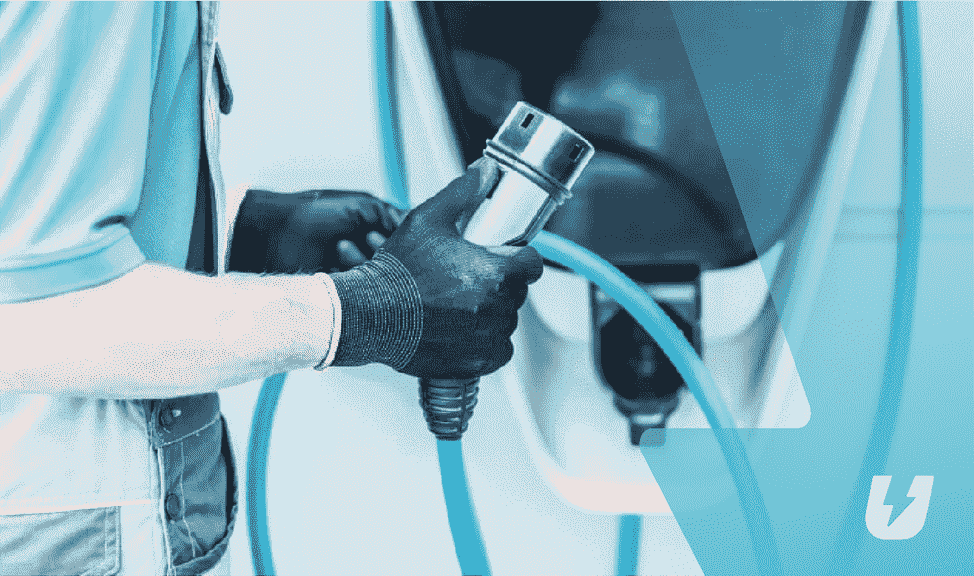Replacing petrol-powered automobiles with electric vehicles (EVs) can be challenging. We are so familiar with using our petrol car that it’s hard to let it go. To make it worse, purchasing an EV is just part of a new setup that you need to get used to. Whether you’re already an electric car owner or have yet to buy one, installing a home charge point is critical when purchasing an EV.
While EV car owners and prospective buyers reflect on getting EV chargers installed at home, additional expenses like installation costs prevent that from happening right away. How much is it really to have an EV charger installed at home? Is it as pricey as we think it is?
Let’s break down the costs of installing an EV charging point at home and look at the unique advantages that benefit electric car owners.
But First, Why Go EV?
While opting for an electric car may seem more expensive upfront, the investment pays off in the long term. Consider this; an EV is a lot cheaper to charge than old cars.

Furthermore, since EV engines run on electricity, it doesn’t undergo the steps and processes necessary for conventional engines to work. It also does away with the different tasks of maintaining traditional petrol engines.
More importantly, as the UK gears towards zero emissions in 2035, acquiring an electric automobile seems to be sooner than later.
Why Would I Get An EV Charger At Home?
Electric car chargers are now being made available at work, car parks, supermarkets, or almost any public place. While some are free, charging on the road typically costs £6.50 for a half-hour charge. On the other hand, a full top-up at home would just set you back around £15.
With a home charger at your disposal, you can have your electric car up and running at your most convenient time. You can also charge during off-peak hours, where you might pay as little as 5 pence per kWh, depending on your energy provider and available tariffs. You can enjoy unparalleled accessibility when charging your EV. You can even leave it charging while you sleep!

Some experts claim that EV car owners can break even the cost of installing an EV home charger in just a few years. With that said, getting an EV and an EV home charger gives car owners numerous advantages. But how much is it really to install EV chargers at home?
How Much Is It To Install EV Chargers At Home?
EV chargers cost £700 to £1000 (sometimes even beyond £1000) though they may cost lower or higher depending on the specifications. This is a safe estimate, though. More importantly, to effectively address the question “how much?” we must break down the different considerations in pursuing that electric vehicle home charger.
Breaking down these concerns can help better understand the different options available when going about at-home electric car charging. The more we know about the alternatives in the market, the better it is for us to arrive at choices that will best suit our needs and preferences.
Let’s look at the EV charger installation requirements and how it affects installation costs:
Home Specifications
When getting your charger, it is essential to consider details relevant to installing it at home, as every property may need a set-up of its own. This is why EV installers require conducting surveys first. This allows customers to inform installing professionals about the different conditions of their property and whether or not it meets minimum qualifications.
There is a base fee for each installation (typically around £400). Then again, whether the house has the infrastructure to support electric car charging or not significantly impacts installation prices. Any deficiencies in infrastructure and other related concerns must be addressed accordingly before installation to have a safe, working charging point at home.
When Must You Pay Extra?
Here are some instances when house specifications affect the basic installation costs:
- Cables used to connect the home charge point to the DB box are around £15 for every metre, and installations usually include 10 metres in the basic fees. This means you must pay additional for anything more than 10 metres. The further away the DB box is from the charging point, the more expensive installation gets.
- These cables are fitted with a plastic conduit as extra protection from dampness, water, and other harsh conditions within the environment where these cables are installed. Additional coverage due to longer wires means paying for the excess plastic used.
- There are occasions when fuse boxes need to be replaced or upgraded. This happens when the current one doesn’t meet the minimum conditions for a home charge unit to function safely. You may have to shell out £350 or even higher.
- Fitting an earthing or grounding system can also translate to additional expenses. However, some newer charge points have in-built protection from electric shocks and might not need an Earth stake.

- Labour costs vary depending on the specific requirements of installing the EV home charge point. If accomplishing the task takes longer due to conditions specific to the location, you can expect a bump in the labour fee.
- In the absence of one, a secure, well-lit, off-road area must be constructed to accommodate the installation of a domestic charging point. This could significantly affect your overall expenditures.
While some of these infrastructure requirements are pretty standard, bespoke set-up and installation specifications affect base cost and pricing. Things such as having longer cables or fitting an Earth stake are just some scenarios contributing to the overall installation cost.
Charger Types
Depending on which kind of charger you want to purchase adds to the cost of installing an EV charger at home.
Typically, chargers plus installation range from £700 to over £1000. You can have the 3.6kW units (slow chargers, £700 average price) or the 7kW home charger (fast charger, £950 average price). The faster ones cost a few pounds more but need at least a couple of hours only to fully charge a car, compared to slow chargers, which take twice the time.
There is also the 22kW charger which fully charges an electric car in just 3 hours! It is also the most expensive among the three as it’s generally priced at £1,200. And although the 7Kw is usually used by most drivers, you must get the charger that best suits your electric car or preferences.
The features and capacity of a charger also impact installation costs. Basic chargers are cheaper, and those with advanced designs naturally cost more. For example, some charges have LED status indicators, while some have a full-colour display.
Can I Install An EV Charger At Home Myself?
You may be wondering: “If it’s that expensive to hire a professional installer, maybe I can do the job myself.” As always, you’d never go wrong, deferring to professional advice and workmanship. Even experienced electricians may have difficulty setting up their home charge point as EV chargers as a product and device is an entirely different area of expertise. So, the short answer is “No”.
Avoiding labour costs by not hiring certified installers could be more expensive in the long run. For one, professional installers are aware of the safety protocols for a successful installation, thereby preventing possible problems post-installation. In addition, without using installers, you might lose your vehicle’s charger’s warranty.
Again, unless you specialise in installing EV chargers at home, the best course of action is to leave the job to qualified and certified installers. Even then, you’d have to hire professional installers, as installing EV chargers on your own would make you ineligible for a government grant that could significantly lower your installation expenses.
Wait, There’s A Government Grant?

Yes! As part of the move to swap our traditional fuel engines with greener, electronic vehicles, the Office for Zero Emissions Vehicle (OZEV), previously known as the Office for Low Emission Vehicles (OLEV), entitles grants to cover a certain amount of the EV home charge point installation fees.
According to the UK government website, the Electric Vehicle Homecharge Scheme (EVHS) provides grant funding of up to 75% (or a maximum of £350) towards installing electric vehicle charge points at domestic properties across the UK. However, it is essential to note that the EVHS will no longer be available to single-unit property owners, including people with mortgages, starting April 2022.
Installations in single-unit properties–bungalows and detached, semi-detached, or terraced housing—must be completed by the end of March 2022. On the other hand, in the same update, it says that “the scheme will remain open to homeowners who live in flats, and (to) people in rental accommodation (flats and single-use properties).”
With the EVHS grant, Electric car owners don’t need to shoulder the entire cost of installing an electric car charger at home!
What Have We Got So Far?
When computing the price of the installation of an EV Charger At Home:
- Location requirements (extra materials, labour) impact installation cost
- Charger types are priced differently depending on their features, design, etc.
- Deductible government grant, if applicable
In short, while there are ballpark prices for getting an electric car charging point at home, the final price is determined by combining the three factors we listed above. It’s best to consult with your installer or service provider to estimate an accurate cost.
Also, more than just giving an estimate, professional installers, more often than not, offer a comprehensive package when it comes to having that EV charger fitted at home. Ensure that your installer services include a home survey for infrastructure needs up to testing your charge point at home post-installation.
Ultimately, it is you who will determine the amount you can spare for a home EV charger that fits your budget and preferences based on the factors required in getting an electric car charger installed.

Like you, we understand that the transition to having an electric car and ditching our old favourite petrol cars is not easy. Especially considering the amount of information we need to make sound decisions in these new purchases. At the same time, we also need an equal amount of confidence that the EV charger we install in our home is the most cost-effective and suitable for our ever-changing lifestyle.
So why wait until you can have that home EV charger fitted immediately? Contact us, and we’ll be happy to help you have that EV charging point installed in no time!
Take your knowledge to the next level. Click here to learn more and broaden your horizons: Can I Install My Own Charging Station

